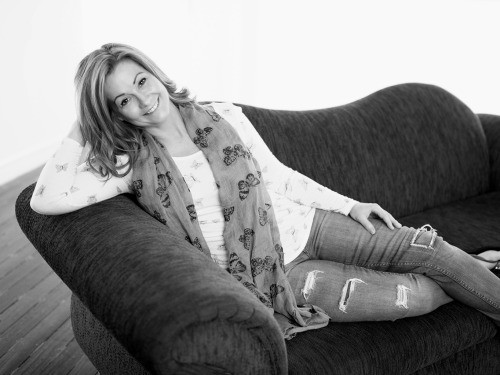Exclusive Interview with Lisa N. Edwards


As an actor, you have enjoyed a career in both TV and film. Which medium do you prefer
“I prefer film definitely. It is an art in itself. The way they take the time to fill out the scene. The films that I’ve worked on are done beautifully. I really enjoyed working on them and with the people that I worked with.”
What would you say is your favorite role to date?
“I played a waitress in a short film called Riviera and it was lots of fun. It was a comedy role and I got to do a bit of stunt work. It was just so much fun. That was the first time I did stunt work. They did have a stunt double there and I said “No, hang on I’d like to try this” (laughs). It was just lots and lots of fun.”
Can you share with us any memorable moments working on a TV or film set?
“One of my first roles I was on set of a comedy series called Kath & Kim over here in Australia and I was asked to be a body double and it was naked gardening. It was not something that I would normally do so I said okay I’ll try this once and in the scene you can see my bottom. It was the one and only time I’ve ever done anything like that and I would never do it again (laughs).”
Can you share with us your experiences working in a talent agency?
“I did that for 13 years. I worked for the talent agency before I actually bought it. I can’t really say why I bought it. (laughs). I think it was security more so than anything else. It opened my eyes to all areas of the industry and it’s kinda been a blessing for what I’m doing now. It helped me write my book obviously because I met a lot of people, like entertainment lawyers, other agents and casting directors and just lots and lots of different people. Who have lots of stories. I got to see a whole different side of how the industry works.”
Let’s talk about LIMBO. How did you conceive of this screenplay?
“I was talking to an acquaintance of mine and she was telling me about this idea that she had. She wasn’t sure what to do. We went over it a bit, what to do, and how to develop it further. She just had a basic idea. I helped her to create the story, create the characters, and to turn it into a film.”
You are also an author of books. Does your approach to writing books and writing screenplays differ?
“Very different approach. The screenplay is very much fit for how it had to be written so the characters were pretty much developed and they were intertwined into each other. It was not something you were able to manipulate too much and change. Once you had your basic outline, that was where you had to stay. Whereas with the book, I know where it needs to end, but as I write, it changes and it evolves. The book takes on its own life. It goes in different directions depending on what mood I was in when I was writing.”
Are there any authors who serve as your creative inspiration?
“I like Shakespeare. I love John Green. I love his books They’re just beautifully crafted written stories. They keep you involve and guessing. They are stories I can read with my daughter as well. She’s ten and they’re not too old. Reading with her gives us that special time together.”
You are a believer of pre-destiny. Do these beliefs shape the message of empowerment you seek to convey?
“They do. I’ve got a series on pre-destiny and how it works. If you think of life as a jigsaw puzzle and all the people you meet are a piece of that puzzle and they fit in. Sometimes you meet people and they aren’t quite fitting and you can jam them in and maybe they’re meant to fit in later on, or they just don’t fit in your puzzle. I like this thought that things are meant to happen for reason.”
What inspired you to write Can’t Fight Fate?
“The story at the beginning is actually my own psychic reading when I was 2. Oer the last few years, I’ve spoken to a lot of people about psychics and the experiences with them. I found similar themes happening with those conversations which would always call back to the question what if what the psychic said actually did come true? If the person that I met was what the psychic said?
I wanted to sorta develop this character who always second guessed herself and always thought about what the psychic was saying when she met people. It shapes her being, it shapes her whole life and her whole destiny.”
Was it difficult transitioning from writing screenplays to writing books?
“It was a natural progression. Can’t Fight Fate actually started as a screenplay that I was writing. I had a basic outline of how I wanted the screenplay to go. As I was writing, the ideas were getting so big and going in so many directions, it needed to become a book. That book actually became three books (laughs). I can’t wait for you to read Chasing Butterfly when it comes out next year because I think that’s a great book.”